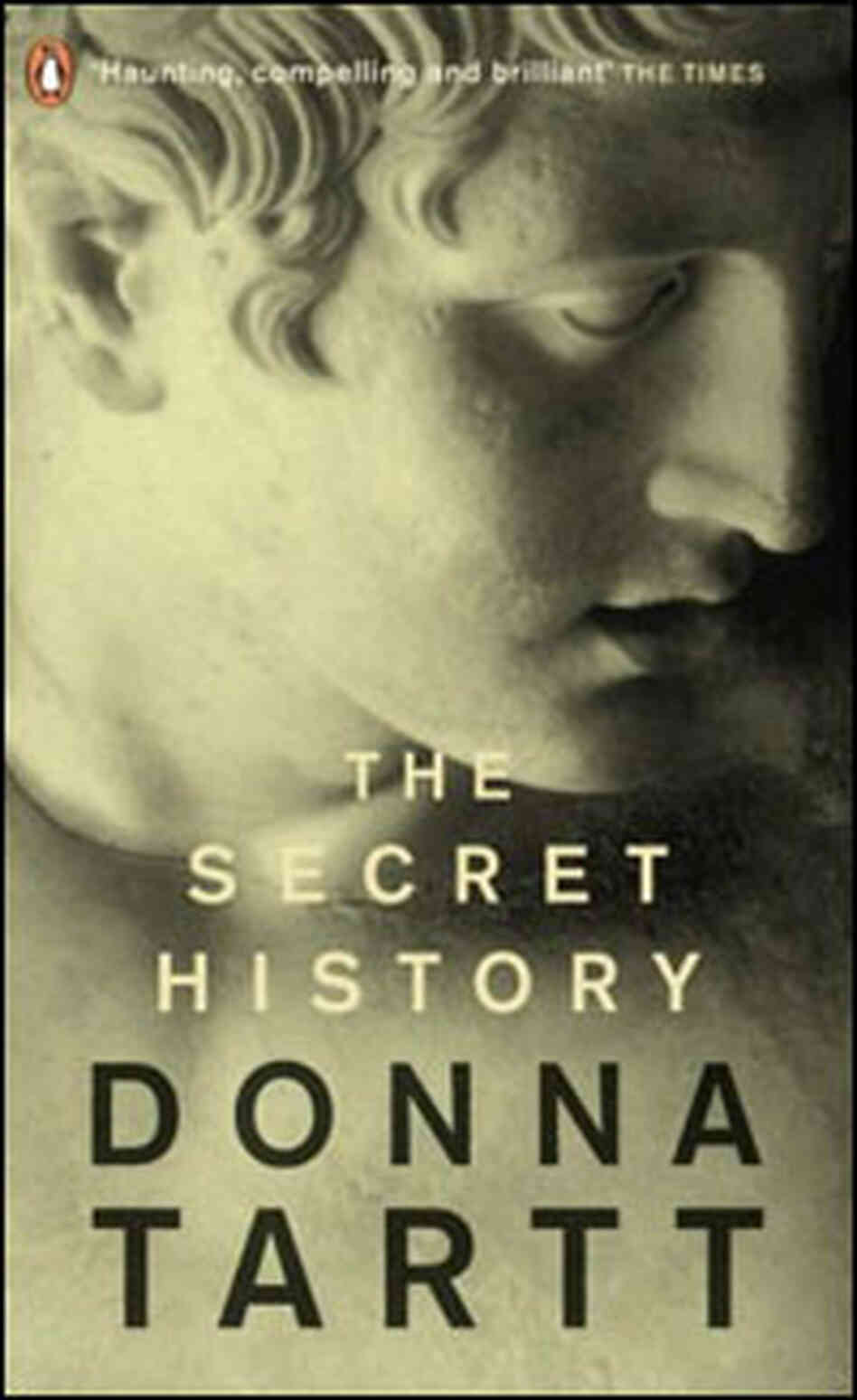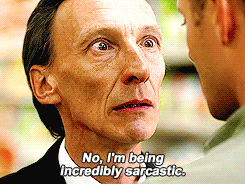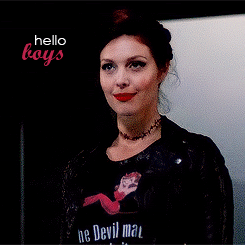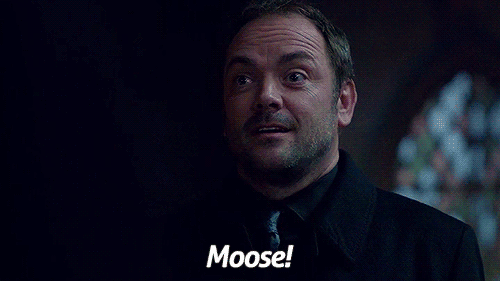The moment that
Samantha Shannon’s debut novel—the first in a planned series of seven—came onto my radar, I knew I
wanted to read it. The press-hyped
comparisons to JK Rowling’s Harry Potter series caught my eye, but
the description of the book itself reeled me in. It was characterized as a
dystopian, “New Adult” novel, with fantasy and speculative fiction elements,
set in the future (though involving a bit of alternate history) in London and
Oxford. Um, hello. Sign me up! The fact that the book was penned by a recent
Oxford graduate only added to the appeal. I am typically inclined to support
talented young, female writers. Those writing in my preferred genres get bonus
points!
 |
| {Or, as my boyfriend would call it, "The Boner Season."} |
A Few General
Comments:
I read the book over both legs of
my recent trip to Michigan. My primary reaction? This is a series—and a new
author—with real potential. I was impressed by the quality of the world
building and the overall vibe of the book’s smooth blend of dystopia and
fantasy. Some readers have whined of plot holes and unanswered questions (be
warned that the book does end on a cliffhanger), but I have patience and faith.
The first installment of any series tends to be a starting point from which the
world, the characters, the story, and even the writer’s talent take root and
grow. As a new author, Shannon’s craft will no doubt mature with her series as
it progresses through the remaining six volumes.
I’ve also checked out a few
interviews with Shannon, who seems humble, passionate about her writing, and
generally a cool chick. In
this Q&A, she talks about her
HP-love and anxiety over the press’s
insistence on comparing her to Rowling. Then she highlights the Benedict
Cumberbatch calendar hanging in her room. Samantha, let’s be besties! I will
definitely be awaiting the next installment in this series, and cheering for Shannon’s
continued success.
And now: a few notable strengths
and weaknesses, plus some juicy bits that I want to discuss about The Bone Season. Potential light
spoilers, though I've censored anything that might give too much away. Skip the “juicy bits” section at the end if you haven’t
read the book.
Strengths
·
Beautiful
world building! We get the dystopian Scion London (a little 1984, a little V for Vendetta); the clairvoyant-run crime Syndicate; the Sheol I
penal colony, based in the abandoned grounds of Oxford; the Rephaim, a powerful
race of humanoid creatures who run Sheol I; the Emim—aka “Buzzers”—a species of
flesh-eating creatures that threaten humans and Rephs alike; and, of course,
the whole gamut of clairvoyance, complete with diverse abilities, practices,
and even a sort of social caste. There’s also a nice bit of alternate history
thrown in to accommodate for the rise of clairvoyance and how this event shaped
the sociopolitical landscape of Shannon’s world. My favorite aspect was the whole
concept of the aether, the sort of mystical spirit-force that voyants tap to
use their powers. Although Shannon does not dwell on religion in the text,
there are some definite spiritual-verging-on-religious connotations to the
relationship between humanity, the Rephs, voyance, and the aether. It will
be interesting to see how this plays into the overall mythology of the series
as it progresses.
·
The
primary players—both protagonists and antagonists—are interesting and likable.
Paige is suitably feisty as a heroine. I’m occasionally on the fence about the parade
of Katniss Everdeen clones being marched out in the name of feminism or
whatever—yes, we certainly need strong female characters; but the idea that
only ass-kicking, surly, tomboyish, warrior women can be considered “strong” is
ludicrous and demeaning—but Paige also has a softness to her that Shannon
occasionally reveals. I hope that her character will continue to develop
outside of the “courage” and “romance” arenas of her personality. Warden, too,
shows signs of complexity beyond many of his genre counterparts. He exhibits
touches of the ubiquitous Byronic hero, but Shannon tempers these with enough
redeeming qualities to prevent him from being an asshole (for the love of God,
YA writers of all genres, take note of this). The primary antagonist, Nashira
Sargas, is an ice queen; but I’m interested to learn more about her
motivations, her backstory, and particularly the history behind her
relationship with Warden.
·
This is
not paranormal romance and there are no love triangles. It’s always
refreshing to find a genre novel that devotes time to developing characters’
relationships (romantic or not) without turning into a romance novel with some
plot thrown in haphazardly. A habitual offender, as much as it
pains me to say it
because I still love her to death, is my girl
Cassandra Clare. Both her
Mortal Instruments and especially her
Infernal Devices series begin with inventive world building and engaging
premises, which are sabotaged by her inability to resist devolving into increasingly
melodramatic romantic plotlines, usually driven by irritating love triangles.
What results is a work that can be read as a potentially interesting story that
is continually stalled and/or underdeveloped at the expense of long and
repetitive love scenes; or a romance novel that is bogged down by extraneous
plotting. Shannon avoids this by preventing the romantic aspects from
overshadowing the more important plotlines. The only “romance” at play
here is slow moving and plot related; and it is definitely not the primary
focus. There’s no forced love triangle to annoy or divide her readers. For
those who enjoy a little kink, there
are some
transgressive elements to the romance (power differential, interspecies…). Just
don’t expect some
Fifty Shades nonsense!
·
She makes
references to my favorite books, so I will love her even if her future books
are turds. Frankenstein? Check. The Turn of the Screw? Check. I’m going
to go ahead and assume that a randomly mentioned spirit muse dubbed JD is the
ghost of John Donne. No one try to convince me otherwise!
 |
| {Seriously, Samantha Shannon, let's chill and geek out about books together sometime!} |
Weaknesses
·
Some
structural editing would be helpful. Especially in the first quarter of the
book, there is a jarring lack of balance between exposition and action. Two
large information dumps that occur early in the text are helpful in giving
the reader the necessary background information (I know some have complained
about finding these sections confusing or “too much” in terms of new info, but
I didn’t find this to be a particular issue), but stall the plot to a
noticeably irritating degree. There’s also a temporal detachment that makes it
difficult to gauge how much time has passed between certain events. I was
surprised, late in the book, to learn the time span from beginning to end; I
initially assumed that things transpired over a much shorter period of time.
Just a few more quick time references throughout would have better clarified the
speed at which certain characters and events were developing throughout the
story.
·
Some of
the supporting characters are underdeveloped. On the one hand, we have some
truly fun and vivid secondary players—namely Jaxon Hall, a charismatic crime
boss who reads like the love child of Fagan and Long John Silver, with the
style and panache of Gilderoy Lockhart. I want more of him, please! On the
other hand, we get characters like Sebastian and Liss, friendly but downtrodden
types who are meant to inspire pathos in both the reader and, especially, in
Paige. The trouble is that these characters are not fully drawn enough to
resonate. Seb, who seems intended to inspire a substantial portion of Paige’s
emotions and actions, gets so little development that he seems like an
afterthought. I couldn’t buy her emotional investment in a character with so
little “screen time.” While Paige’s connection to Liss is totally believable,
Liss herself is not particularly interesting at this stage in the text. There
were a slew of other secondary characters who came and went with little lasting
impression, but I was not as bothered by these; both because many these
characters seemed more plot-necessitated, and because I expect that the ones
that matter will be developed in future books.
·
Do we
need to hear things from Paige’s point of view, or would third person narration
be more effective? First person narration is so popular because it
generates a certain ease in both writing and reading. However, it also sets
limitations on the prose. This was my first foray into the “New Adult” genre;
and I was anticipating a coupling of YA’s high-interest narrative and a more
literary, adult style of writing. Be warned: while The Bone Season follows older characters (Paige is in her
twenties), it reads exactly like a YA novel. I think this has less to do with
the caliber of Shannon’s writing than with the decision to have her
protagonist—who is neither particularly bookish nor overly eloquent—narrate the
series. Apart from the world-specific jargon, there isn’t much in the way of
artful diction or syntax. It isn’t as distracting as Katniss’s pervasive
sentence fragments in The Hunger Games,
but it was noticeable enough that I repeatedly wished Shannon had made the
short leap over to third person limited. As
a SPOILERY side note, highlight to read: Perhaps it also would have
eliminated one of the few minor details that really irked me—when Paige’s first
encounter with Warden leads her to immediately note what a hottie he is. We
could have been alerted to the fact without being ushered into the obvious,
“Welp. I guess no matter what happens from here on out, they’re probs gonna
hook up at some point!” I fervently thought that that one, tiny moment
undermined much of the beauty of how slowly and ambiguously their relationship
progressed.
The Juicy Bits-
Random Other Musings
**Highlight to read, but beware! Spoilers abound! Don’t read this section if you haven’t
read the book!**
·
Erotic
Alien Hairdressing—or, that moment when the fact that your lover is putting
your hair into an updo is more bizarre than the fact that your lover is a
different species. I’m not going to lie, here. The moment when Warden
started intricately dressing Paige’s hair had me literally laughing out loud. I totally get the intimacy of the moment. I even thought
it was pretty hot. But the image of this giant, sexy, non-human warrior playing
hairdresser with his big ol’ man hands was more than a little funny.
·
What’s
going on under Warden’s skirt? Can he and Paige actually get it on?
Samantha Shannon indicated on Twitter that yes, Rephs do in fact have the
ability to reproduce with one another. However, we never see any Reph children
described in The Bone Season. I
wonder why? The more important question is obviously whether or not Rephs and
humans can do the dirty, as many readers are clearly anticipating some cross-pollination!
I think it’s safe to assume that they are anatomically similar to humans, as I
doubt Bloomsbury would be very happy if Shannon gave them tentacle dicks or
something of the sort. Given the fact that Rephs are repeatedly described as
being exceptionally tall, I’m also going to go ahead and assume that they are pretty
hung. Could this present some anatomical challenges? Also, what does it say
about me that these are the main questions I have lingering after book one?
No—please—don’t respond to that! As long as Shannon doesn’t devolve into Breaking Dawn type ridiculousness, I
think all will be good.
·
I DO have
a theory about who and what the Rephaim are. I previously mentioned my
interest in the aether. It’s probably too early in the game to
make solid predictions, but I’m going to guess that the Rephaim will turn out
to be some sort of pre-Adamite form of humans. Perhaps they will be similar to
Nephilim, given their stature and attractiveness, but within the
"theology" of her world, where the aether acts as a sort of
nirvana-as-God force and they're, like, this connected but unique offshoot of
that. Just my two cents, though.
·
Where are
the damn Buzzers? For such an important threatening force, the Emim sure
don’t seem to make many appearances. I’m really hoping for more Buzzer action
in book two…plus a more detailed description of what they look like and where
they come from. Their initial description reminded me a bit of these creatures
called the Crekka in my own series-in-progress—reptilian humanoids who eat
human flesh and are also named for the sound they make—so I’ve been picturing
them somewhat like that. Or are they more like zombies? Or maybe wendigos? Give
us the deets, Samantha Shannon!
Alright. Enough for now. I’d love to hear your thoughts on The Bone Season! Feel free to drop a
line if you want to talk books or argue about whether the spirit “JD” was
supposed to be the ghost of John Donne (it totally was—right?).
 |
| {Do my insect metaphors arouse you?} |
 The Secret History is
a thriller on its surface—a sort of murder mystery in reverse, where readers
discover the murder of a young student at the hands of his friends in the
opening pages, and then backtrack to chart the course of events that lead to the
murder and its aftermath. Its real power, though, comes not from the murder
plot, but from the protagonist’s gradual decay as he becomes enveloped in the
turmoil of one of the strangest and most seductive friend groups I’ve seen
portrayed in a novel.
The Secret History is
a thriller on its surface—a sort of murder mystery in reverse, where readers
discover the murder of a young student at the hands of his friends in the
opening pages, and then backtrack to chart the course of events that lead to the
murder and its aftermath. Its real power, though, comes not from the murder
plot, but from the protagonist’s gradual decay as he becomes enveloped in the
turmoil of one of the strangest and most seductive friend groups I’ve seen
portrayed in a novel.

















